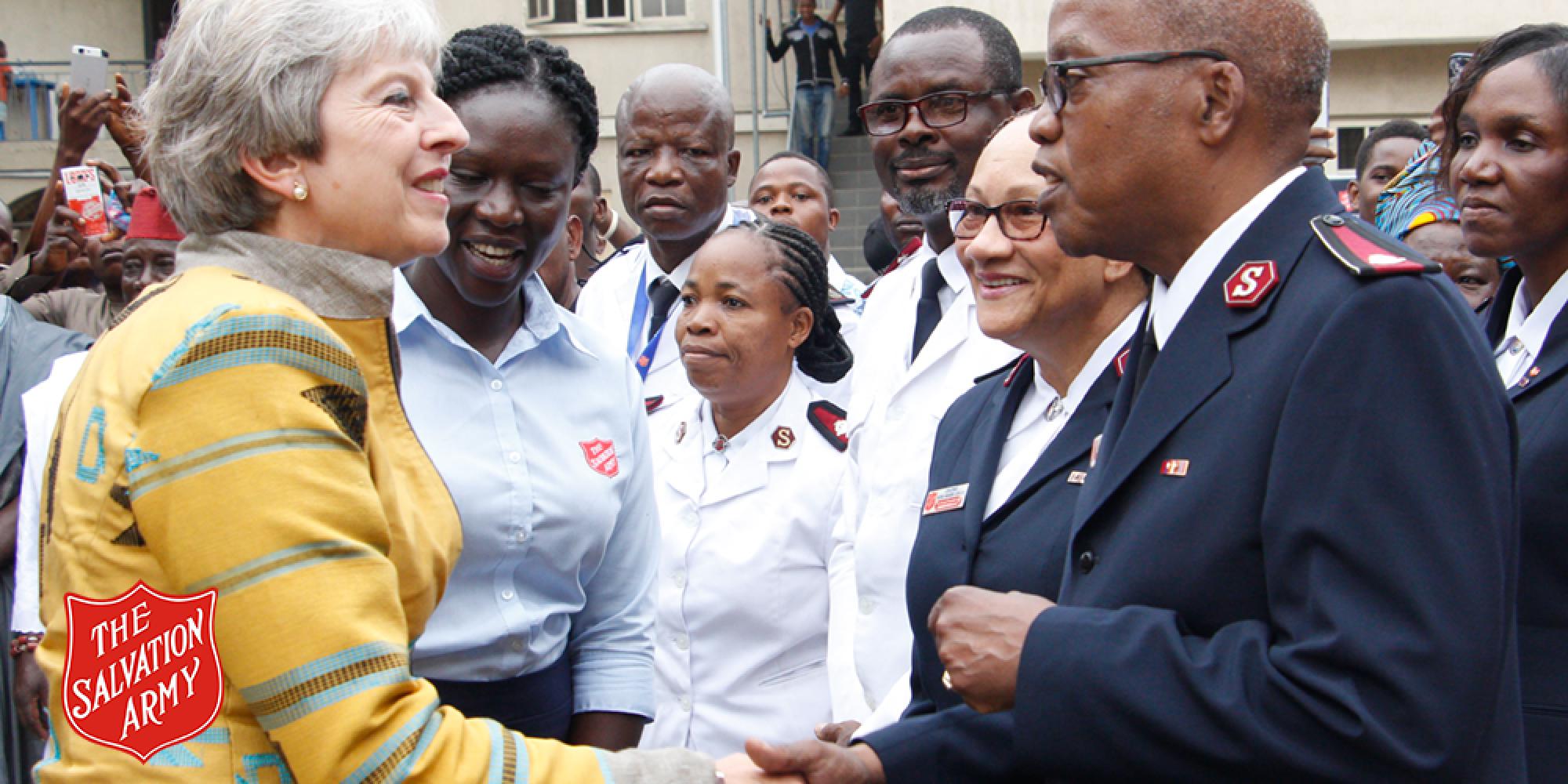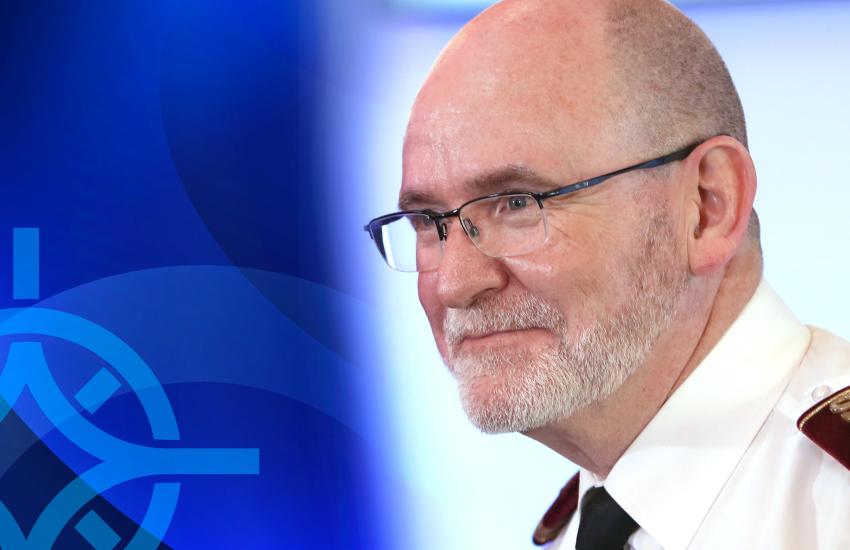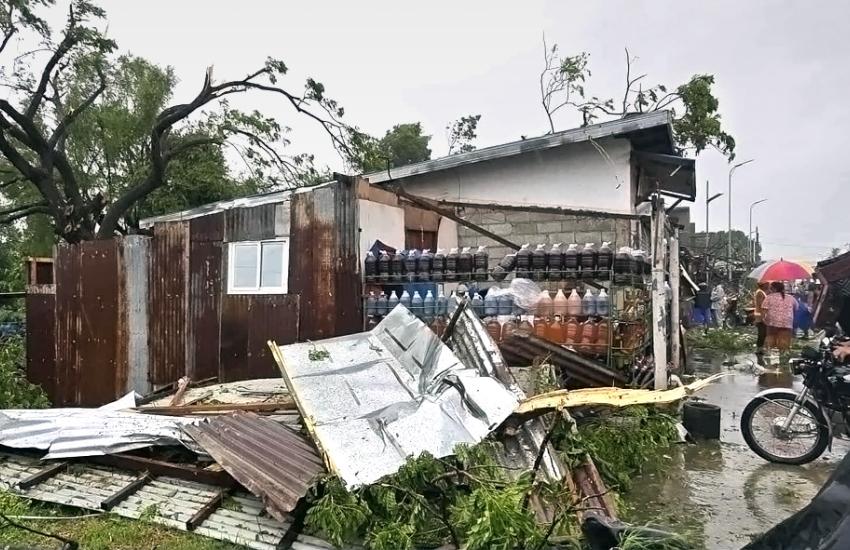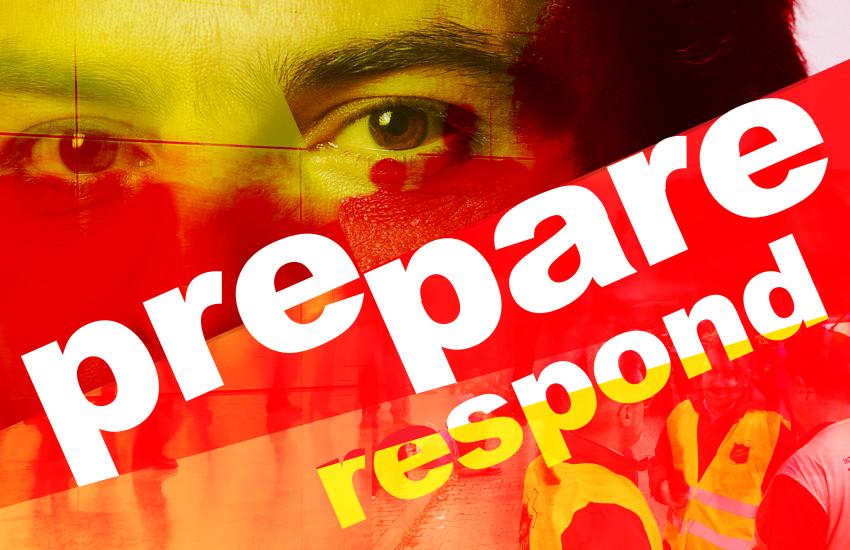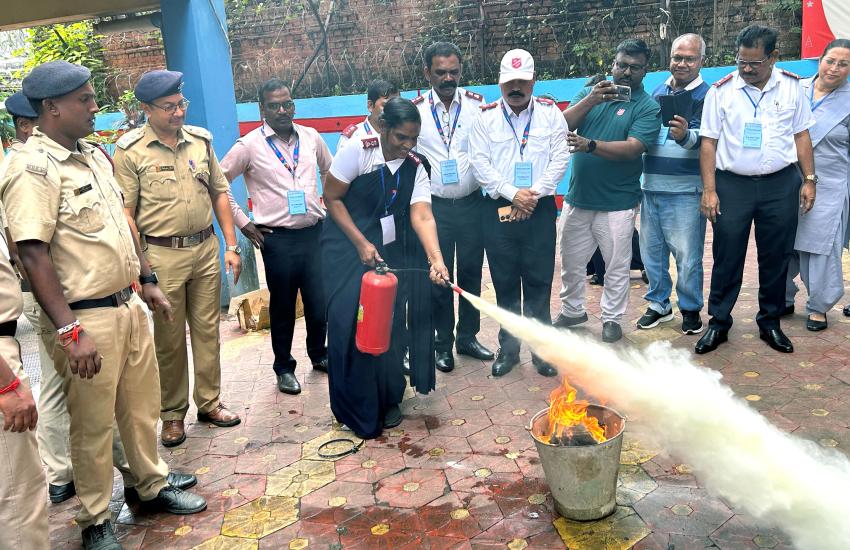THERESA May, the British Prime Minister, visited The Salvation Army in Lagos, Nigeria, on Wednesday 29 August to learn more about one of its programmes designed to combat modern slavery. The project supports people within Nigerian communities who are vulnerable to human trafficking or who have survived this form of horrific exploitation. During her visit, the Prime Minister met staff and volunteers from the community as well as survivors of human trafficking and their families who have been supported by The Salvation Army’s Community Awareness and Recovery (CAR) project, funded by the UK government’s Modern Slavery Innovation Fund.
Since 2011, The Salvation Army’s Anti-Trafficking and Modern Slavery unit in the United Kingdom Territory with the Republic of Ireland has supported nearly 650 people from Nigeria who have been trafficked to England and Wales. Nigeria features consistently in the top 10 countries from which people are trafficked to the UK, forced into modern slavery and have received specialist support from The Salvation Army through its Government contract.
The CAR project, which is one of a range of in-country programmes around the world supported by a specialist international team from The Salvation Army in the UK, runs across four states in Nigeria and the island of Mindanao in the Philippines. It focuses on changing community attitudes and behaviours towards trafficking, and offers care and accommodation with specially trained host families. The project also links people to long-term community reintegration and support programmes run through Salvation Army churches and centres.
In partnership with the UK Home Office, The Salvation Army is piloting new approaches to transforming the lives of people susceptible to trafficking or recovering from exploitation. The project moves away from shelters and institutions, favouring traditional African responses of providing support within family and community settings, with a focus on enabling communities to care for their own vulnerable people in the long term and empowering survivors to develop sustainable self-reliance to reduce the risk of re-trafficking.
To date the CAR project has received more than 100 referrals and more than 50 survivors have been supported with recovery and rehabilitation services while capacity continues to be built to meet the continuous growth in demand. In Nigeria, most referrals were for adult women who were victims of sexual exploitation, although some were children, some men and some trafficked for domestic servitude and forced labour.
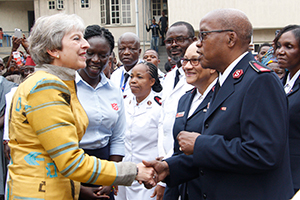 The Prime Minister took time to talk with Salvationists and survivors of human trafficking. Reflecting on the Salvation Army initiative, she told those assembled of the importance in providing information and practical support in order to prevent the risk of trafficking.
The Prime Minister took time to talk with Salvationists and survivors of human trafficking. Reflecting on the Salvation Army initiative, she told those assembled of the importance in providing information and practical support in order to prevent the risk of trafficking.
Director of Anti Trafficking and Modern Slavery for The Salvation Army in the UK, Kathy Betteridge said: ‘The Salvation Army has made responding to modern slavery and human trafficking a global priority, building on our long history of working with people affected by this horrendous crime. We are therefore honoured that the Prime Minister has chosen to visit our project in Nigeria.
‘We also welcome the Prime Minister’s announcement today of new measures to cut illegal and unsafe migration and provide support for victims of modern slavery in West Africa. We have been grateful for the support, which has enabled The Salvation Army to complete the foundations to get this innovative project up and running and already generating really positive outcomes for the community.’
Project Manager for the CAR project in Nigeria and the Philippines, Paska Moore, who attended the Lagos event said: ‘It was a privilege to introduce the Prime Minister, as a long term champion of the fight against trafficking, to the people whose communities The Salvation Army has been able to support through the CAR project.
‘She was able to see first-hand the impact of UK Government funding on people vulnerable to trafficking whose lives have been transformed by this project which draws on our expertise in this field and strong community networks across Nigeria.
‘She also met some individuals who spoke frankly of the terrible exploitation they have endured and how, now they are successfully reintegrating into their communities, they can face the future with renewed hope.’
From a report by Isobel McFarlane, United Kingdom Territory with the Republic of Ireland
- Photos illustrating the visit are available via Flickr at sar.my/pmlagos
- Resources to raise awareness and help identify the signs of human trafficking, as well as a range of Bible studies, prayer guides and children’s activities are available to download from www.salvationarmy.org/antitrafficking
- The Salvation Army is present in 131 countries and has made responding to modern slavery and human trafficking a global priority. From the UK, it provides financial and technical support to 11 anti-trafficking projects around the world, including a recovery centre for child victims in Malawi, a community and recovery programme in India, an employment verification and job support programme in Poland and a social enterprise cafe in Kathmandu, Nepal.
- The Salvation Army in the UK and Nigeria are working with their counterparts globally, as well as other organisations engaged in tackling modern slavery, to build a networked response, developing and sharing best practice, which can lead to better prevention and improved support for those affected by human trafficking.
- The Salvation Army also has an annual day of prayer for victims of human trafficking, which takes place this year on Sunday 23 September
